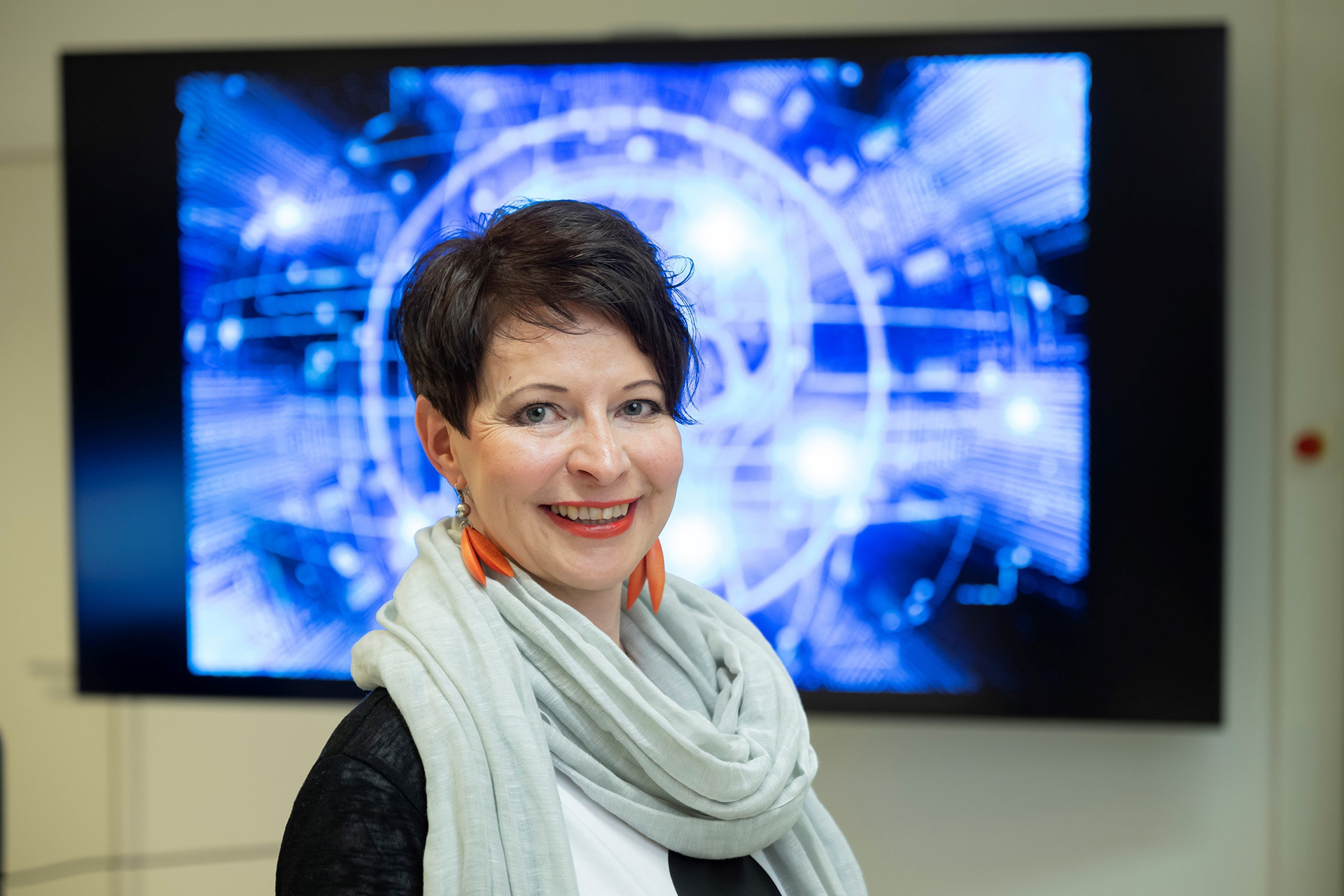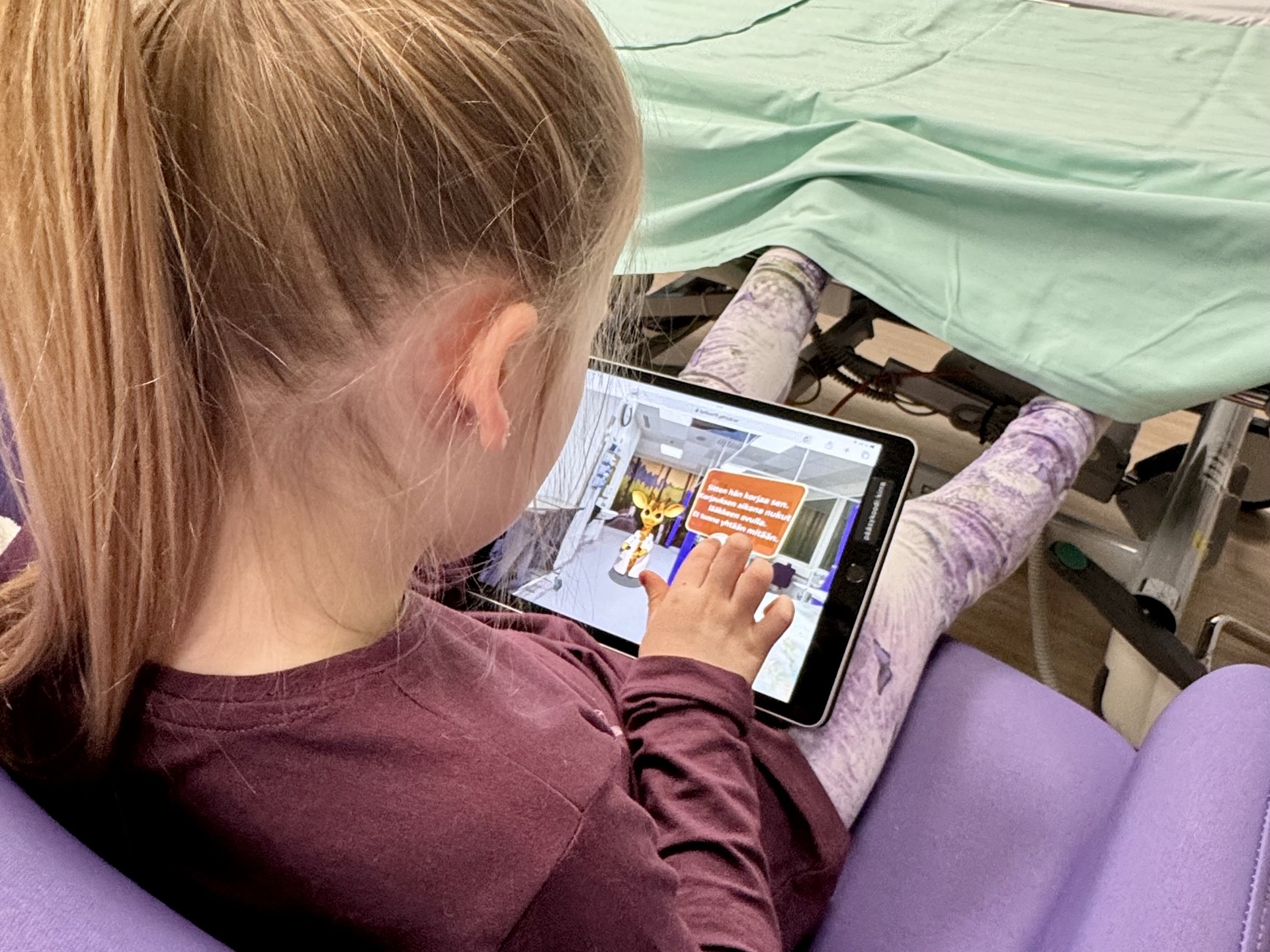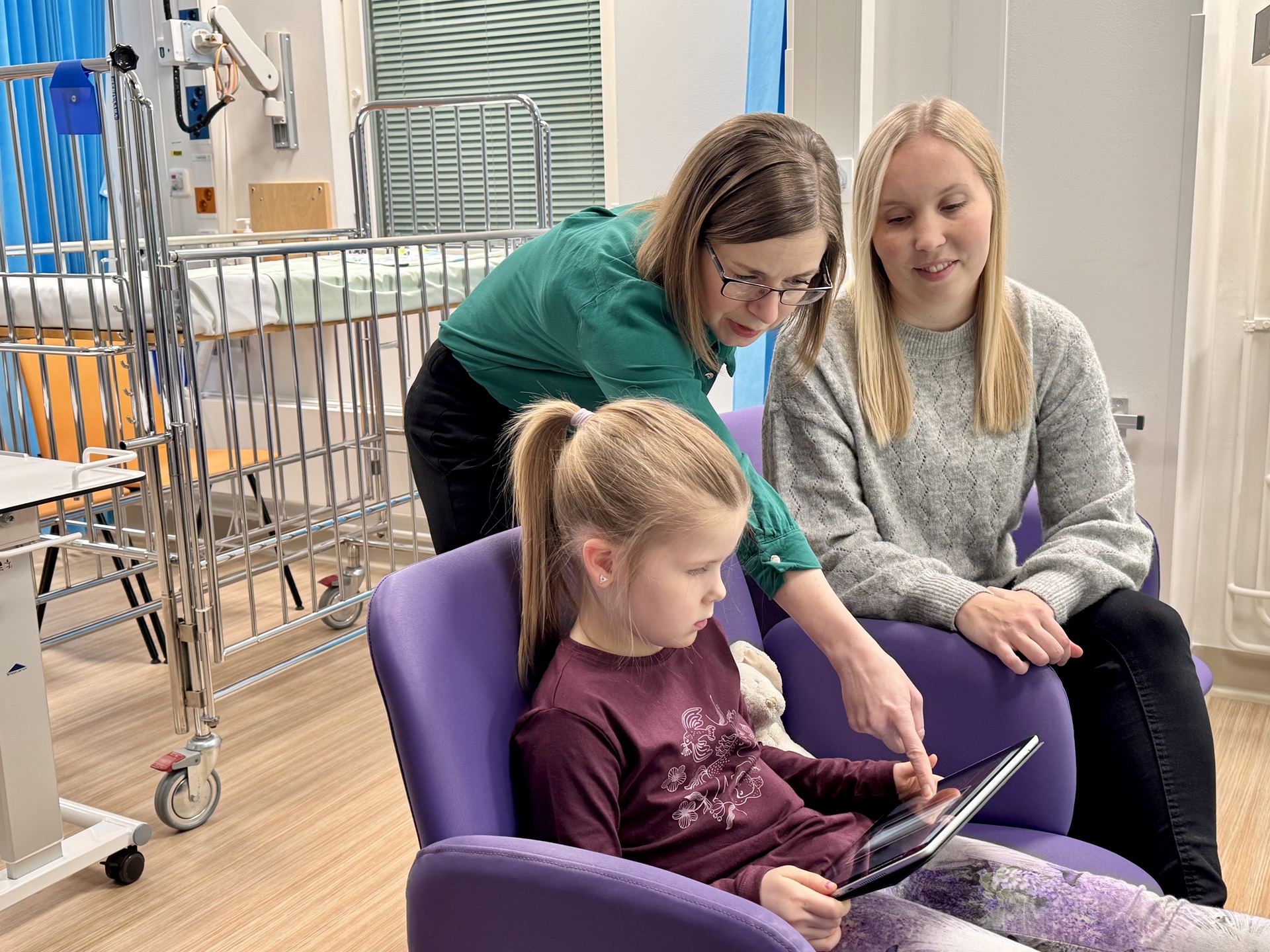The Health Technology Research Group offers, among other things, test bed activities in the Health Technology Laboratory. The leader of the research team became interested in health technology during her Master’s degree at university.

Elina Kontio leads the health technology research group.
Published:
Edited:
Text: Siiri Welling
If there was a running race at Elina Konttio’s childhood school, it was certain that Kontio wanted to win.
“Then I went even though I had a taste of blood in our mouths. That’s how competitive I was,” recalls Kontio.
Kontio lived her childhood and youth in Perniö in southern Salo. Her childhood home was the village of Germundsvidja, between the villages of Strömma and Skoila. In this small village, many children and young people found the joy of doing something in sport. Kontio was particularly interested in athletics as a child, and her sports included sprinting and long jump.
“I did well in athletics. I was even a three-district champion at the time. But my sporting career was interrupted during my high school studies when I injured my back,” says Kontio.
Ending a promising sporting career with an injury was a hard blow for Kontio. On the other hand, it gave Kontio a chance to think about the future and what she would like to do as an adult. Kontio had always had a desire to help others, and she was also interested in medicine. That’s why she decided to study nursing at what was then the Salo School of Health Care.
“After graduation, I worked as a nurse for several years as a rotating substitute at the internal medicine clinic in Tysk. My home department was the intensive care unit for internal medicine, but I also worked a lot in cardiac monitoring and haematology. I am very grateful for the experience and all the lessons it taught me. I got to see and experience a lot.”
From nurse to doctorate in health technology
During her early working years, however, Kontio became increasingly convinced that she wanted to pursue a university degree. So she started studying at the open university and read for a nursing degree and an education degree. She completed part of her studies during her firstborn’s baby year. The effort paid off, as the doors to a Master’s degree opened at the Department of Nursing at the University of Turku.
“Already in my Master’s studies, I combined the information systems side with health information. What has always interested me about technology is that it can improve the way people are treated and make the work of professionals easier. I don’t like technology for technology’s sake, but it’s a great thing if, for example, a person who is immobile can improve their quality of life with the help of an exoskeleton,” says Kontio.
Kontio has focused more on the software side of his work. Her doctoral thesis in 2013 presented a model for developing real-time decision making in the care process of cardiac patients. According to Kontio, the data collected on the care environment and the patient can provide a huge amount of information that can help, for example, in treatment planning. In its simplest form, such data can be data collected from biosensors, such as blood glucose meters, combined with historical data from a patient’s entire medical history. By combining data, AI can influence the care a person receives.
I believe that in ten years’ time we will be able to use AI to better predict, for example, illness.
Technological advances have had a huge impact on the health sector. Until the early 2000s, it was not possible to collect basic data electronically, unlike today. Device integrations were still in development, which meant that data such as drip-feeders and blood pressure still had to be entered manually into the information system. The development of AI and information systems could therefore have a significant impact on healthcare in the future.
“I believe that in ten years’ time we will be able to use AI to better predict, for example, illness. I also believe that we will have more life-enhancing devices and that things will be more automated,” says Kontio.
Kontio is currently researching the possibilities of using artificial intelligence in the Health Technology Research Group at Turku University of Applied Sciences. The research group is developing, for example, synthetic data, as real health data collected from patients is not openly available. Synthetic data can be used for product development for companies. Successes include the PRIVASA project. In addition to AI, Kontio is interested in sports technology. The research group has long collaborated with the Eerikkilä Sports Academy, and is currently developing the Eerikkilä MyeWay system. On the other hand, the research group also aims to develop innovations that benefit ordinary people.
“Sport Tech, like other health technologies, makes use of all the know-how methods, but the starting point is to think about solutions for the physical activity of ordinary people. How can people keep fit and thus possibly prevent certain diseases and syndromes? How can the physical activity experience be strengthened?”
Kontio’s research group collaborates a lot with the Turku University of Applied Sciences’ Health and Welfare sector. Multidisciplinary research benefits both business and academia. Students in particular gain a lot of experience in working in research teams.
“I’ve always wanted to develop, improve and also help others. I no longer teach, but my work still gives me the opportunity to see students at close quarters, and thus to help them develop into experts in their field,” says Kontio.
Get to know the Research Group
Read next
-
Press Release

New app to help children prepare for hospital visits
An international project led by Turku University of Applied Sciences developed an app that allows children and their families to virtually visit a hospital and learn about the…
-
Press Release

Turku AMK develops more equal transport in the Turku region
The international project, led by Turku University of Applied Sciences, promotes more equitable and sustainable urban transport in Finland, Hungary, Greece, Italy, the Czech Republic and France. Transport…
-
Case

How can mobile technology alleviate children’s fears of hospitals?
Transient fears in children and adolescents are common and a natural part of growth and development. Fears are the way children deal with new, unfamiliar or exciting situations.…
